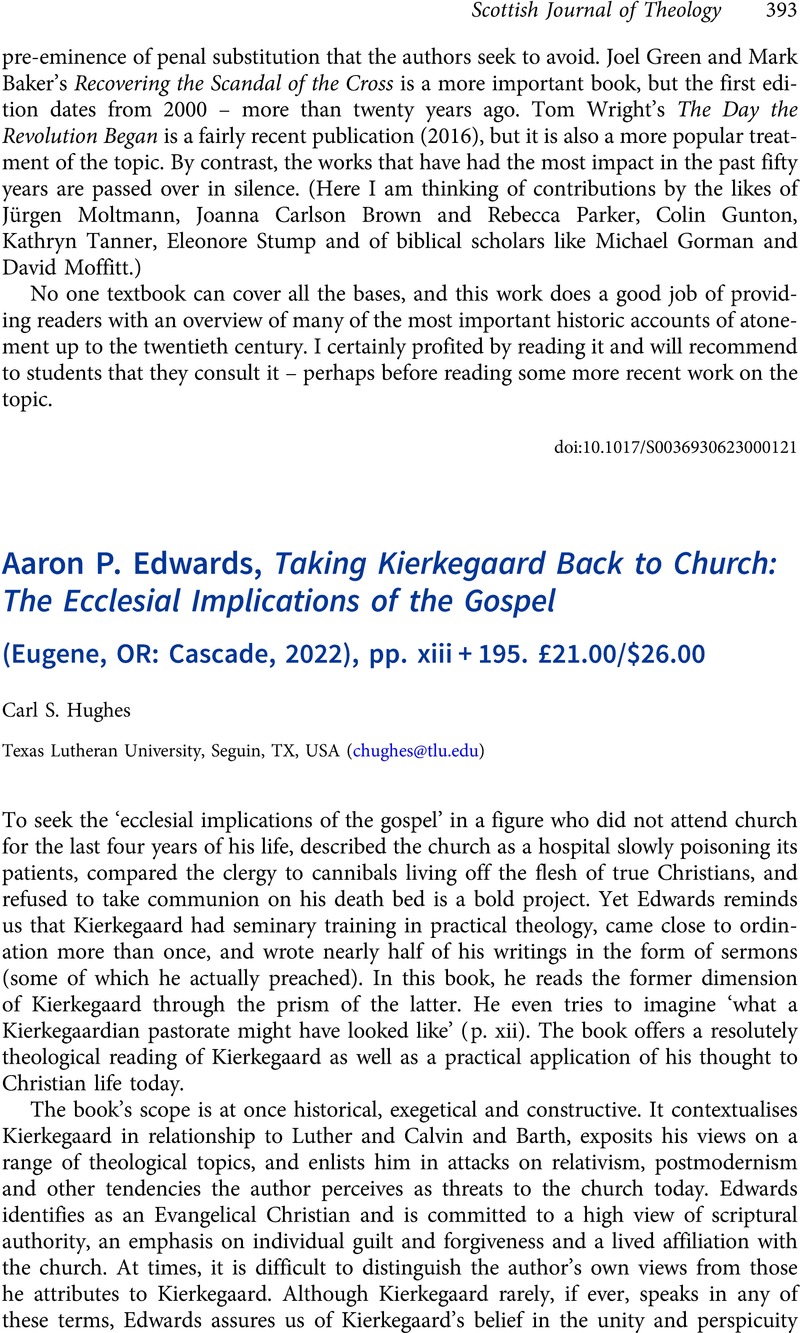No CrossRef data available.
Article contents
Aaron P. Edwards, Taking Kierkegaard Back to Church: The Ecclesial Implications of the Gospel (Eugene, OR: Cascade, 2022), pp. xiii + 195. £21.00/$26.00
Review products
Aaron P. Edwards, Taking Kierkegaard Back to Church: The Ecclesial Implications of the Gospel (Eugene, OR: Cascade, 2022), pp. xiii + 195. £21.00/$26.00
Published online by Cambridge University Press: 16 May 2023
Abstract
An abstract is not available for this content so a preview has been provided. Please use the Get access link above for information on how to access this content.

- Type
- Book Review
- Information
- Copyright
- Copyright © The Author(s), 2023. Published by Cambridge University Press



